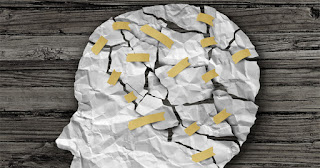Chronic Pain and Whiplash
 Most sprains and strains typically take six weeks to recover, provided the patient receives proper care, which may include self-management strategies. However, something is different about a whiplash associated disorders (WAD) injury in that many patients do not recover.
Most sprains and strains typically take six weeks to recover, provided the patient receives proper care, which may include self-management strategies. However, something is different about a whiplash associated disorders (WAD) injury in that many patients do not recover.
At the Whiplash 2017 Symposium held in Australia, Dr. Michele Sterling stated, “Whiplash associated disorders are a costly burden to Australian society. Up to 50% of people who experience a whiplash injury will never fully recover. Whiplash is resistant to treatment and no early management approach has yet been shown to prevent chronic pain. We are hoping this study will provide a promising treatment for chronic pain.”
Experts in the field presented important information about the development and prevention of disorders associated with a WAD injury such as chronic pain, post-traumatic stress disorder (PTSD), and depression after trauma. The University of North Carolina’s Dr. Samuel McLean reported that approximately 30% of people present to the emergency room (ER) in developed countries after trauma exposure (such as car accidents) and approximately nine out of ten are discharged without proper evaluation of these common neuropsychiatric problems. One problem in making a neuropsychological diagnosis is that these conditions often develop sometime after the initial presentation to the ER.
Dr. McLean and his team are currently researching the biological basis of brain injury in a new unprecedented study. Participants will be enrolled at the immediate post-trauma level and will receive a comprehensive evaluation including genomic, neuroimaging, neurocognitive, behavioral, and symptom assessments. Dr. McLean states that WHEN the biology of PTSD, depression, and chronic pain is understood, then proper tools can be developed to identify the disorders and interventions to treat them can be achieved.
The problems associated with traumatic brain injury (TBI) are not new, but TBI is rarely dealt with until long after the WAD injury. Part of this is due to a lack of understanding of TBI on the doctor’s part and the other is a reluctance to discuss the symptoms of cognitive dysfunction on the patient’s part. This is because the symptoms are often vague, hard to describe, or somewhat embarrassing.
Questions specifically related to TBI include: Do you have problems staying on task? Do you easily lose your place during a discussion or thought process? Do you have to review your work more times than usual? Does it take longer to process information that you hear or read? Do you have mental fog?
Often, only when these questions are asked will the patient and doctor realize that there may be the need for a thorough neuropsychological evaluation. This study hopes to be able to develop new tools for evaluating TBI and to develop new interventions to help these patients.
by ChiroTrust
 Dr. Steve Alukonis is the only Diplomate of the American Board of Chiropractic Orthopedists in the Cocoa Beach, Cape Canaveral area and one of very few in the county. He has been in practice for over 25+ years right here in Cocoa Beach, Florida.
Dr. Steve Alukonis is the only Diplomate of the American Board of Chiropractic Orthopedists in the Cocoa Beach, Cape Canaveral area and one of very few in the county. He has been in practice for over 25+ years right here in Cocoa Beach, Florida.



Comments
Post a Comment